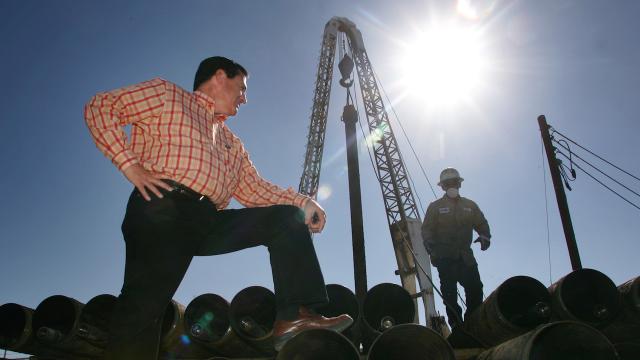So your taps have run dry in the drought and you desperately need more water for your family. Why not just dig another well? For starters, the cost of digging a well might be more than you paid for your house. And then there’s another issue: No matter how deep you dig, someone with more money is going to dig one deeper than yours.
As part of its drought coverage, Planet Money does a deep dive into the economics of digging down — way down — to find water. Stacey Vanek-Smith visits Porterville, California, a city that you might have heard about because its residents are taking desperate measures not only to find suitable water to drink but also to bathe and wash their clothes. Residents take showers in church parking lots and must rely on donated bottled water to cook their food.
Lots of these people have wells which have delivered water for decades, but groundwater levels have dropped so low that their wells can no longer reach it. There’s still water under Porterville, but only the deeper, more powerful wells are still able to access the quickly dropping aquifer.
But here’s where it gets crazy. Farmers are switching to certain crops that need more water — yes, like almonds — because they’re able to make more money on them. One reason they’re able to make more money on them right now is mostly because of the drought — they’re more valuable because they’re harder to grow.
The problem is that big companies with lots of capital are investing in these farms for that very reason (we’ve read about hedge-fund almonds). And armed with this funding, these farms are now drilling lots of wells, trying to extract as much water as they possibly can before anyone else gets to it, so they can bolster their investment. There’s an economic term for it: “tragedy of the commons.” If something’s there for the taking, people are going to take it.
Vanek-Smith follows around a well-driller who used to drill wells to 60m. Now? 600m, with a waiting list that has him booked for over a year. The story is incredible and highlights just how complicated the issues are around making a living and protecting your livelihood in an age of water scarcity.
AP Photo/Gary Kazanjian
